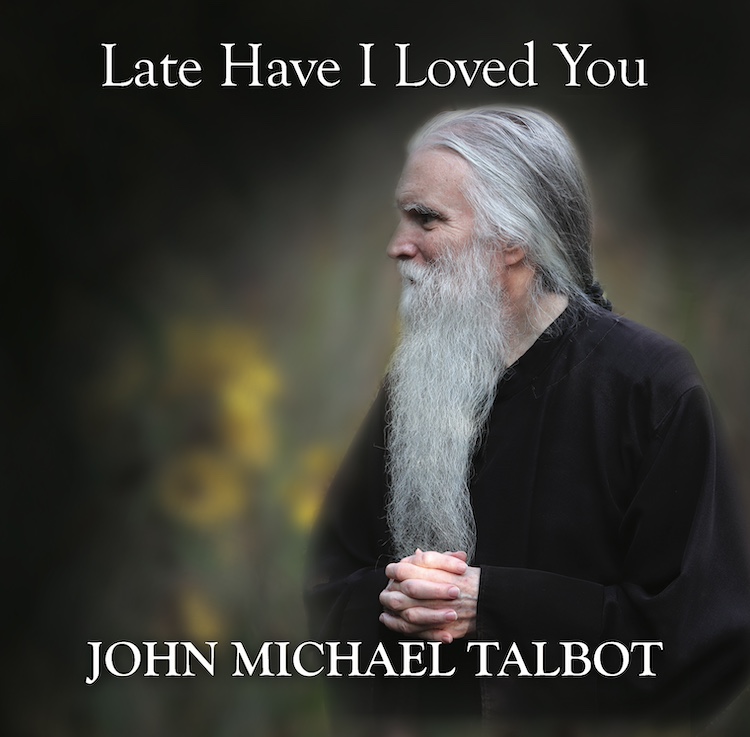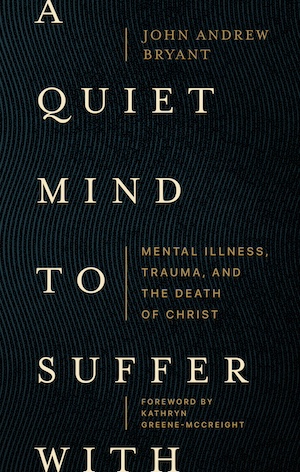By His Scars, We Are Healed: John Michael Talbot & John Andrew Bryant
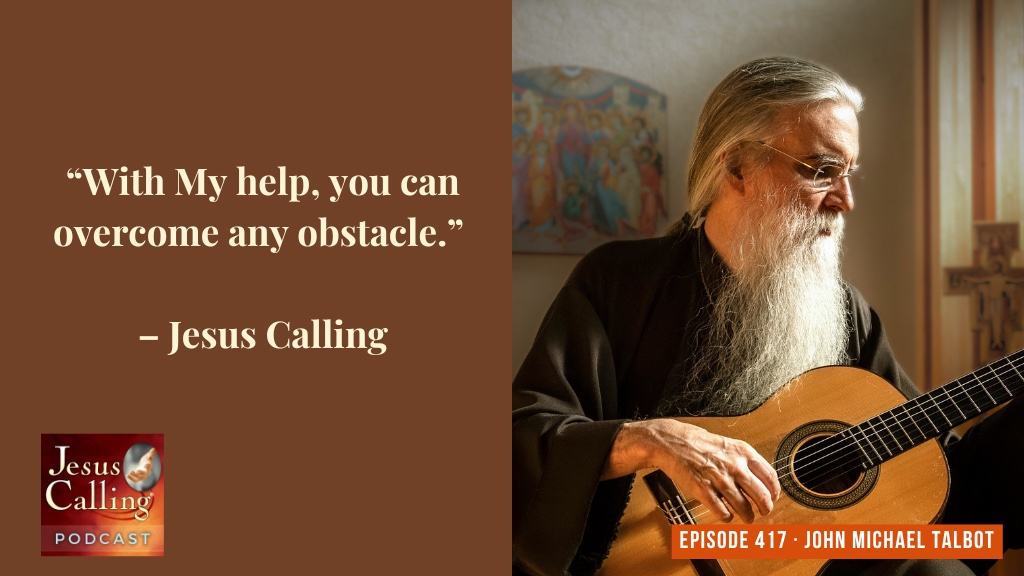
John Michael Talbot: Praise and worship goes up to God, and it’s letting go of yourself to God upwards. Quiet music is a letting go of yourself that’s a downward letting go. The goal is to go through the cross of Christ and let go of the old self. One is an upward movement, the other is downward letting go. Both of them, when done right, are letting go of the old self.
By His Scars, We Are Healed: John Michael Talbot & John Andrew Bryant – Episode #417
Narrator: Welcome to the Jesus Calling Podcast. In this week’s episode, we have the opportunity to listen to John Michael Talbot, a legendary musician and founder of the monastic community Brothers and Sisters of Charity. He shares the intense evolution of his faith: from expressing himself through music, to finding his community in Catholicism, to a moment in a hospital room where he experienced a forgiveness so deep it changed him forever.
Later in the episode, we’ll hear from John Andrew Bryant, a chaplain and author. Bryant shares his battle with a mental health condition that not only revealed the inner workings of his mind, but a deeper understanding of his faith.
Let’s begin with John Michael Talbot.
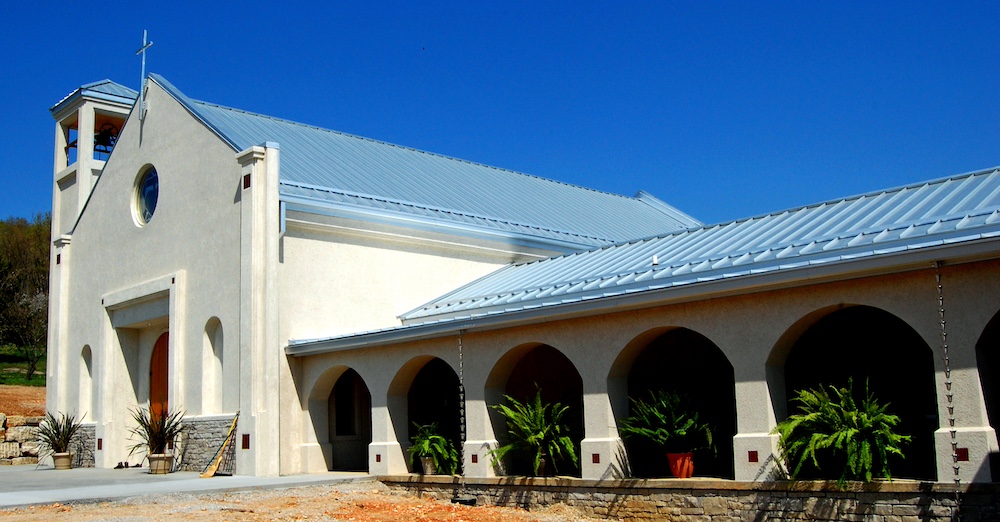
John Michael Talbot: I’m John Michael Talbot, and I make some records and I write some books. I’m a founder of the Brothers and Sisters of Charity at Little Portion Hermitage. And we have many different ministries that go out of our integrated monastic community. It’s Catholic based, but a Christian monastic community here in northwest Arkansas.
The Power of the Red Letter Words of Jesus
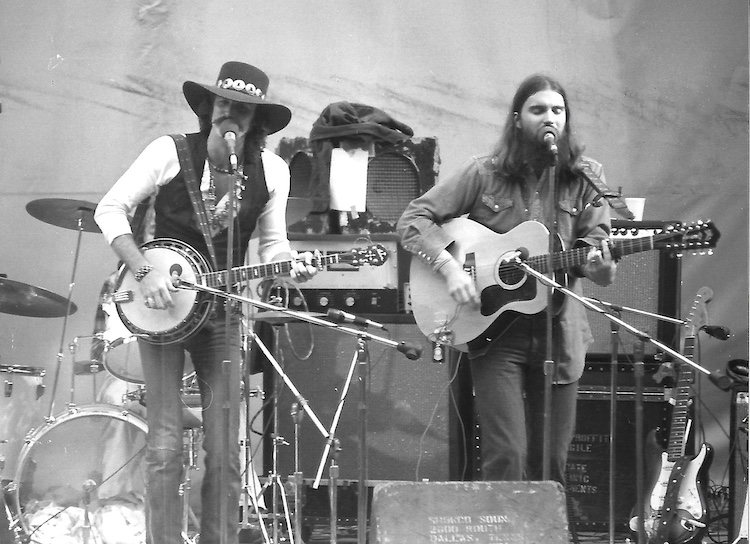
I grew up in Oklahoma, Arkansas, and Indiana. And I was going to be a big baseball star. I was scouted by the White Sox when I was a young lad. Music eventually overtook my baseball love.
I was involved in a country rock group called Mason Proffit, played with just about everybody, all the supergroups of the day. And back in those days, every band played with every other band, every artist played with every other artist back in the sixties. I saw a lot of futility, a lot of unhappiness. And so I started searching for something more. I didn’t know what that was, whether it was religion or philosophy or God or some kind of other power.
And at the same time, I was reading all the different religions, all the different philosophies, and I was also reading my revised standard Bible that my grandma had given me. And those red letters of Jesus seemed to be jumping out. He seemed to be able to say so much more by saying less.
“I was reading my revised standard Bible that my grandma had given me. And those red letters of Jesus seemed to be jumping out. He seemed to be able to say so much more by saying less.” – John Michael Talbot
But I didn’t have an encounter with the divine. So I began to pray, “God, who are you? I just want to know.” I prayed for over a year with no answer, every day, and read insatiably. And then one night, I looked up out of my prayer, and I saw a traditional Christ figure. And from then on, I got involved with Jesus. The love of Christ overwhelmed me, and I knew my sins were forgiven.
Embracing the Jesus Movement and Catholicism
The band fell apart, but we put it back together as a Christian band out in California. We got involved with the Jesus movement in the early days, and we began to play around southern California, the west coast. We ended up doing a festival out in Colorado Springs. I began playing the circuit, basically Christian fellowships, coffee houses, and churches that were open to the Jesus movement. And we just did Jesus music. I saw good people, really good people, everywhere I went, they were filled with the Holy Spirit, and they go to the Bible to try to figure out, How are we supposed to do this Jesus thing?
So I began to read the early church fathers. I began to read Clement of Rome, Ignatius of Antioch, these are writings that are all just right around the same time as the writing of the Revelation, so the very end of the Bible of the New Testament. And then on the contemplative and the mystical side, or the kind of devotional side, I was reading a book called The Imitation of Christ. I kind of read The Didache, the teaching of the twelve apostles, Uranus of Leon. A little later, Saint Justin Martyr. And I was surprised to see the primitive expressions of what today we would call the Catholic faith.
I heard a little still small voice, and the voice said, “John, I want you to become Catholic.” So I sought out a Franciscan priest in Indianapolis, Indiana, at a retreat center there. And I moved in there and built a little hermitage in the woods. And in 1978, I became Catholic.
So I became a Catholic and I figured, Well, my music ministry is over.
I ended up doing one last thing. I put the music of the mass—which has some beautiful, glorious songs of praise in it—and I teamed up with another group called the Body of Christ Catholic Church. We intersected together at a certain point in time, and I asked them to sing. It was just acoustic guitar and 400 voices and an orchestra. And it was unlike anything anybody had ever done before.
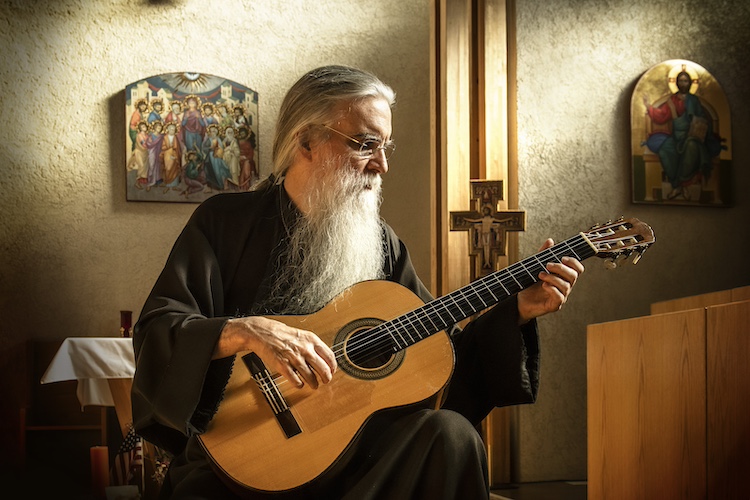
Well, it was the biggest record for Sparrow Records that year, which surprised everybody. I just went back to my little hermitage in the woods. I didn’t do any concerts. Didn’t do anything. And I started putting the Psalms to music. So that began my pattern for music. I would go into solitude, I wasn’t doing any concerts, I was breaking all the rules. I was in solitude and in silence and making every record like it’s the last thing I’d ever do. I’m praying. I’m reading. I’m immersing myself in Scripture. I’m immersing myself in the church fathers. I’m immersing myself in the great saints of the history of Christianity and letting them minister to my spirit, and then from that, creativity flows forth. So that’s what we did for two or three decades there.
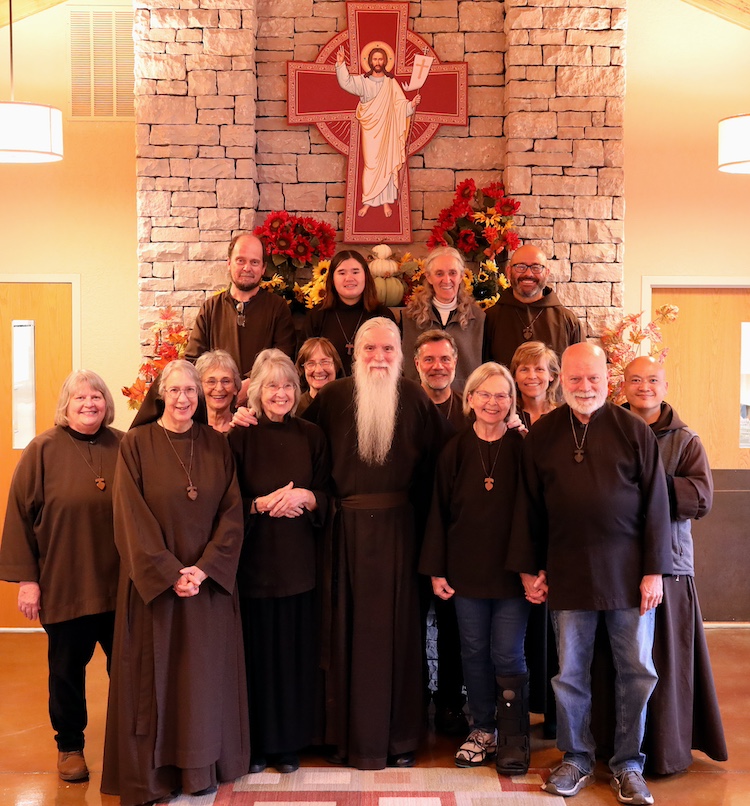
The other thing I’d had a vision for was community. And it was people in communion with Christ, in communion with each other, in communion with creation. I asked the Lord, “What do I do?” And He said, “Stay in music, and I’ll open and shut the doors.” So people began coming to the hermitage door and knocking on my door, and they thought there was a holy man in the woods, but it was just me.
But the beginnings of our community was formed from that, you know? And eventually what happened is we outgrew a facility that the friars gave us, and we had to move down here to Arkansas and start from scratch, which now we’re on 450 acres with the monastic commute in the monastic complex. It’s just been a ride of God doing what God does.
A Vision of Paradise and Forgiveness
I had been on the road, doing parish missions. And I was writing checks that my body could no longer cash, because I was getting older. And I ended up in the hospital extremely sick. I was so sick I wanted to just praise God—when I’m sick, I want to praise God. And I couldn’t. I couldn’t think objective thoughts. I could see Paradise [Luke 23:43]. Paradise is the place where our spirits and souls go after we die, waiting for the final resurrection of the body. And I could see Jesus in the middle of it. It was comforting. And then in the midst of that, suddenly I could see all of my sins. I mean all of my sins, I mean all of my sins as in the number of sins I had never seen before, and the depth of my sins. Not just the number, but the depth of them, in a flash. And in that same flash, I could see all of God’s forgiveness, all of His mercy. And my response to that was to weep.
“Suddenly I could see all of my sins. Not just the number, but the depth of them, in a flash. And in that same flash, I could see all of God’s forgiveness, all of His mercy. And my response to that was to weep.” – John Michael Talbot
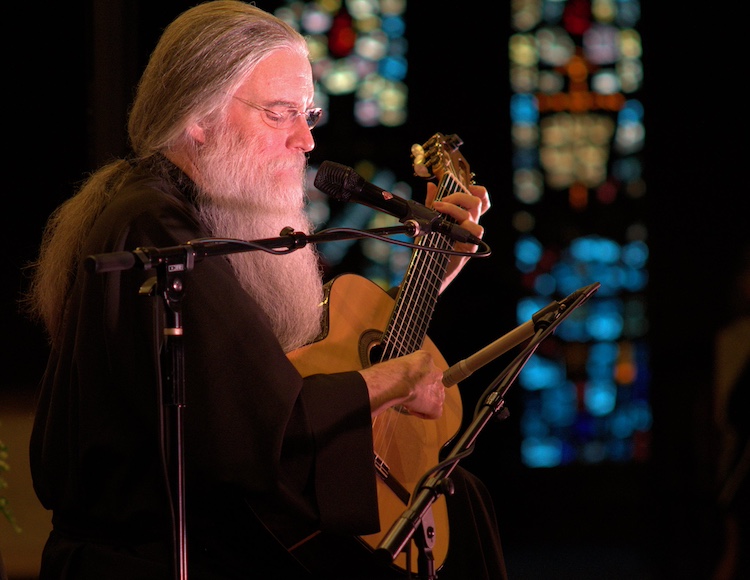
And then when I got better, they discharged me. I came back to the monastery. And when I prayed, all I could do was weep. When I thought about Jesus, all I could do was weep. Friends would come over to see, “How are you doing?” All I could do was weep. For a year and a half, I just walked around weeping. It’s like everything that I’ve done in my life up until now—the books, the CDs, the music, the awards, the sales, the community, playing for popes, playing for 800,000 in Toronto with the Pope, 500,000 in Denver with the Pope, 120,000 with the Pope… these are big numbers. But it’s straw compared to heaven. “Late Have I Loved You” is an attempt to talk about that.
Taking a good twenty to thirty minutes of prayer once or twice a day is vital to our spiritual life. We eat two or three meals every day. It’s vital to our physical bodies to stay healthy. Well, our spiritual body is just as important.
“Taking a good twenty to thirty minutes of prayer once or twice a day is vital to our spiritual life. We eat two or three meals every day. It’s vital to our physical bodies to stay healthy. Well, our spiritual body is just as important.” – John Michael Talbot
Prayer is vitally important to our humanity. In order to be fully human, we have to keep that divine gift alive. So the trick is to take time to pray. It’ll take ten or twenty years. When you get older… that sounds like a long time. But when you’ve been doing it as long as I have, you will look back on it and you go, Oh, that wasn’t long at all. The time flew by. And you’ll discover that now you’re just walking in the spirit, in that contemplative grace all the time.
Narrator: John closes his time with us by sharing a special prayer over our listeners.
John: In the name of the Father, the Son, and the Holy Spirit. Lord, I ask that anything that we said was truly from your Holy Spirit. I ask that for all of our listeners, that anything that came from the Spirit would touch their hearts and their minds and draw them to you, and anything that was not from the Holy Spirit, that they would simply forget and erase it from them. And we pray all these things in the name of Jesus Christ, our Lord and our Savior. Amen.
Narrator: To learn more about John and his work, please visit www.johnmichaeltalbot.com.
Stay tuned to John Andrew Bryant’s story after a brief message.
Deepen Your Communication With God: Jesus Listens Notetaking Edition

Jesus Listens is the 365 day prayer devotional that people everywhere use to guide their prayer life and deepen their communication with God. Now, there’s a new way to keep up with your daily prayers, the Jesus Listens Notetaking Edition. This edition includes full text of Jesus Listens, written out scripture verses, and journaling space. Experience how intentional prayer connects you to God, changes your heart, and can even move mountains.
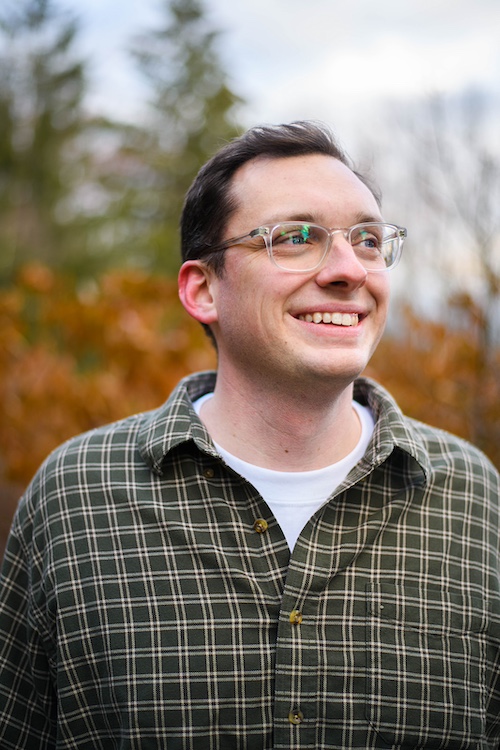
Our next guest is John Andrew Bryant, a writer and chaplain in Beaver Falls, Pennsylvania, who shares his poignant and deeply personal journey with anxiety and Obsessive-Compulsive Disorder (OCD). He opens up about his unexpected diagnosis, the challenges of living with intrusive thoughts, and the critical role of faith in his recovery.
John Andrew Bryant: I am John Andrew Bryant. I am a writer and a chaplain in Beaver Falls, Pennsylvania.
The Power of Our Brain to Stop Us in Our Tracks
I would say up until my late twenties, I just thought I was anxious. I didn’t really learn until I had my breakdown that I had a specific genre of anxiety called OCD. But I’d never thought [about it] because I wasn’t doing any of the things you see on TV. I wasn’t, like, particularly neat. I was pretty messy, actually. I didn’t have a lot of compulsions that were kind of giveaways for the disorder because my compulsions were in my head.
I think there’s a resiliency that we have in our teens and early twenties, mid twenties, where maybe we know that we’ve got a little something going on in our brain, but the ways of dealing with it seem manageable.
My career was ramping up. I was studying for a specific vocation, and I had a lot of pressure in terms of church work. I was doing too much at one time, and my brain—looking back on it, I treated it like it was a Ferrari, but it was an old jalopy. You know, it really could not sustain the kind of mileage I was trying to get out of it. I was just going too hard.
When I get exhausted, I tend to have more bizarre worries. And most of the time, I realize that they’re bizarre and just kind of move through them, or maybe say, “Okay, I need to take it easy.” But at that time, I just didn’t know what was happening. I did not know why my brain was doing this, where these nightmares were coming from. And I couldn’t stop them.
I was also getting to the place where I was afraid to leave the house. I was afraid to go outside. It was just brutal. I just couldn’t function.
My usual thing I had relied on my whole life, which is my ability to think my way through things, was gone. And if that’s been your sort of handholds throughout your life and you lose them or they’re not there, it can just be so deeply disorienting. So I checked myself in, because I didn’t know what was happening. I was going to preach that Sunday. I had to call my pastor and be like, “I don’t think I’m preaching this week,” you know? “What? Why?” “I’m not doing well.” “What’s wrong?” “I’ll be in a facility.” How do you have those conversations?
You really don’t know how powerfully your brain can crush you until it does. And it can make it so that you cannot move. I mean, that’s how powerful it is.
Dealing with OCD
The problem is that OCD looks like what it’s not. And so some of my symptoms, especially the intrusive thoughts, made people worry. Now, when I made the nurses worry because the nurses didn’t know what was happening either, it made me more upset. So everyone was upset and worried. Now, the psychologist at the facility was just like, “You have OCD and you need to get on some meds.” And he wasn’t worried because he knew what it was. I know there’s a variety of positions on medications. And I needed a lot of things, but the organ of my brain needed meds. It just did. And it needed to not be on fire like that. And so for a time, I just needed help sleeping.
When I was at the psych ward, the people there are telling me that they say everyone’s about three or four sleepless nights away from a break. We think we’re pretty durable, but none of us can really survive without sleep for very long and function.
And as you get older and those stressors compound and there’s more stuff to be worried about, or there’s more things that feel unmanageable, your brain can just say, “Look, timeout. I can’t handle this.” And I think that’s what my brain was telling me.
“As you get older and stressors compound and there’s more stuff to be worried about, or there’s more things that feel unmanageable, your brain can just say, ‘Look, timeout. I can’t handle this.’ And I think that’s what my brain was telling me.” – John Andrew Bryant
When Your Mind Betrays You, Respond with Love
I tell people the best picture of OCD I have is to imagine you’re in your car and the siren is going off, but you know everything’s fine. There’s nothing wrong, but the siren won’t stop. And so how do you drive that car anyway? And that’s both my picture of OCD and learning how to live with it, is you learn to drive a car whose alarm is going off, and you can’t stop the alarm, but you learn to drive the car. And that takes time, right? Learning how is such a challenge, because we’re figuring out the language as we go for what’s happening to us. And even as much as I love a diagnosis of OCD, it still wasn’t everything that was wrong with me.
It was like all of a sudden, I had two foster kids that no one else could see that you’ve got to take care of, and it’s your mind and your body. And they’ve both been deeply affected by this, and Jesus cares about both of them. So as much as your mind and body may feel like they’re your enemies, you have to love these enemies you have now. Your mind is turning on you, your body is turning on you, and you have to love them back to health because they’re yours and because you’re shepherding your body and mind now. And learning how to do that as a Christian, where the call to care for one another is so deeply embedded, the call to gentleness to one another, and just a call to faithfulness to one another. Learning to apply that to my mind and body was deeply healing, it just took a long time. It took me three years to feel like I could function in my normal job and have a normal life, and it took me five years to really feel myself again.
“As much as your mind and body may feel like they’re your enemies, you have to love these enemies you have now. Your mind is turning on you, your body is turning on you, and you have to love them back to health because they’re yours and because you’re shepherding your body and mind.” – John Andrew Bryan
Jesus Understands Our Scars
Getting out of my head and back into my life is one phrase people talk about with OCD: getting out of your head and into your life. And I think we need Jesus to make that pilgrimage out of my head and back into my life. Jesus being my source, my companion, and my goal… being all three at the same time. His gospel being my source, His spirit being my companion, gospel and spirit pointing me towards a deeper understanding of fellowship, of believers.
[When] Jesus shows His hands to the disciples, His hands and His feet, He’s showing them that He—for some inexplicable reason—is still carrying the scars of the worst that can happen to a person, a crucifixion, deeply humiliating, a deep well of suffering, as well as taking responsibility for our sins… but also just taking on all the humiliation that’s possible to feel in life. All the suffering that’s possible, He took those things into His hands as well, and He kept the scars, I think, as if to say, “By dying and rising, these are not the final words over you. Your suffering is not the final word. Your mental illness is not the final word.” In fact, the pierced hands by which He took responsibility for it are now the final word. That just sounds like good news to me.
Jesus Listens, January 15th:
Gracious God,
If I keep my mind occupied with thanking You, I’m less likely to fall into hurtful patterns of worrying or complaining. I’ve seen that when I practice thankfulness consistently, negative thought patterns gradually grow weaker and weaker. A grateful heart opens up the way for me to draw near to You. And Your glorious Presence fills me with Joy and Peace.
In Your joyous Name, Jesus,
Amen
Narrator: To learn more about John Andrew Bryant, check out his new book, A Quiet Mind to Suffer With: Mental Illness, Trauma, And The Death Of Christ, wherever you buy books.
If you’d like to hear more stories about finding peace, check out our interview with Emily P. Freeman.
Next week: Patsy Clairmont
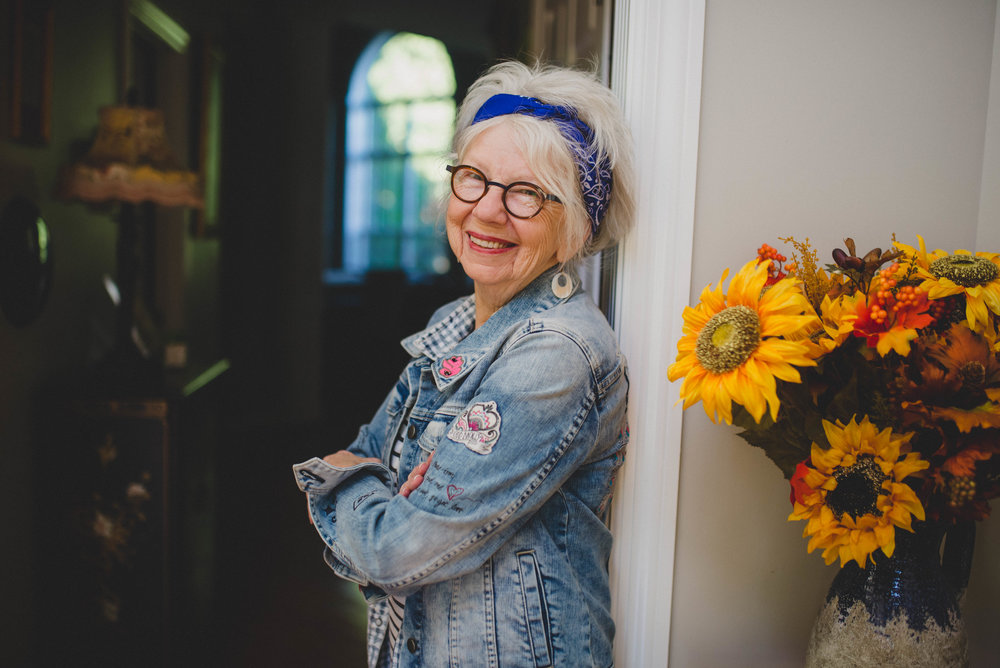
Next time on the Jesus Calling Podcast, we’ll hear from original Women of Faith speaker Patsy Clairmont, who opens up about her initial resistance to a relationship with God.
Patsy Clairmont: Our problems in our life are a gift. They are our curriculum. They are where we will learn the deepest lessons, it is where our bitterness will be turned into compassion for others.
